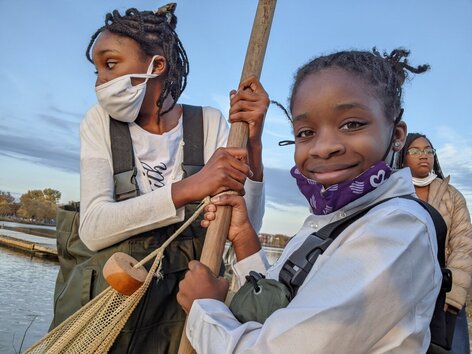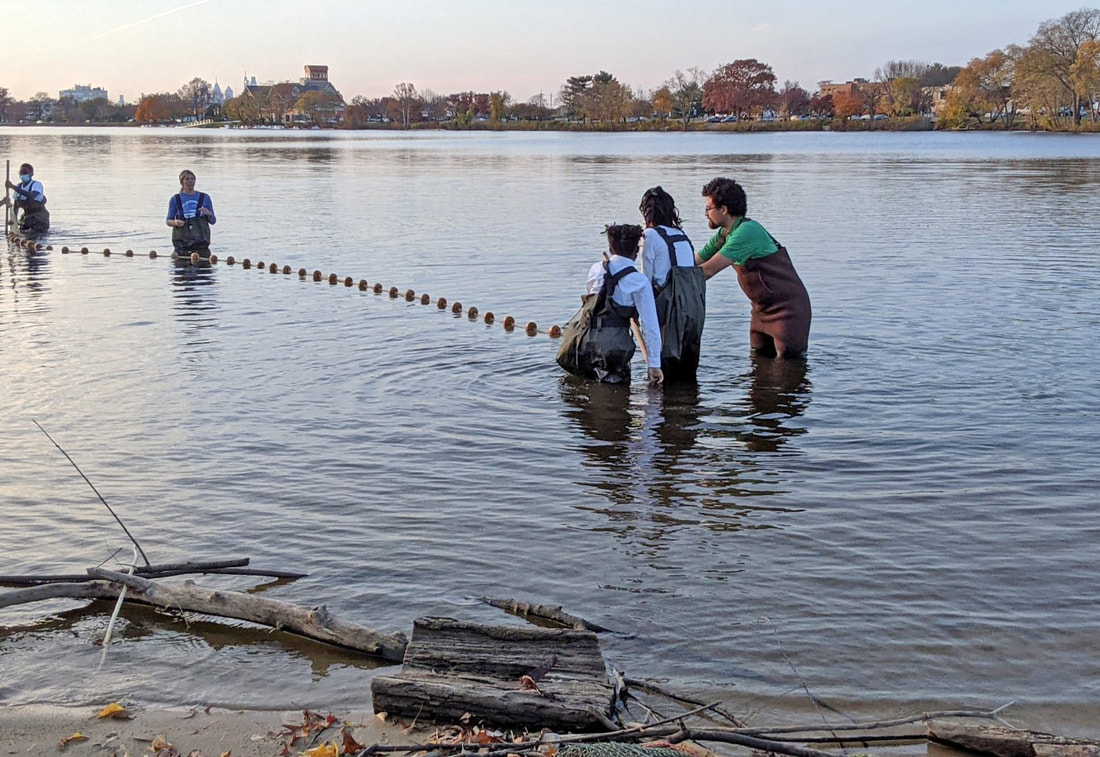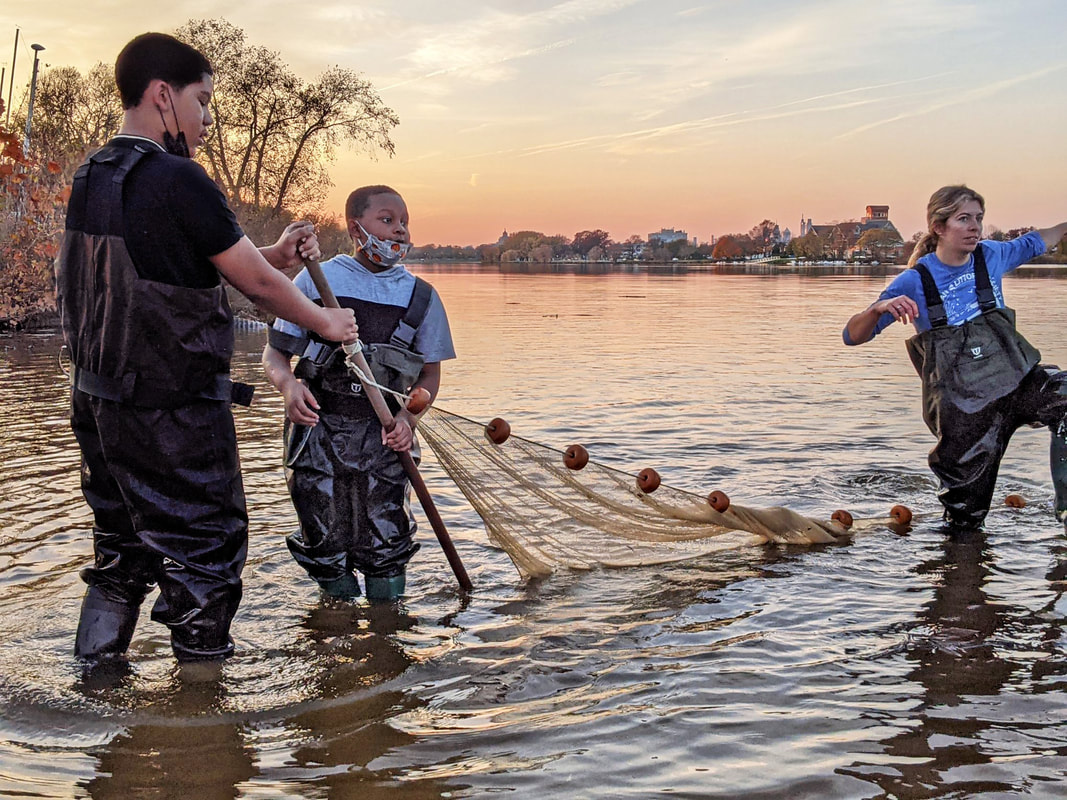|
How can we make the Delaware River “S.A.F.E.” for residents in Camden, Chester, Philadelphia, and Wilmington? By helping our children and our leaders get to know and care for their part of the river. S.A.F.E. stands for Swimmable, Accessible, Fishable and Equitable; the first three letters point to the major goals of the Clean Water Act passed in the 1970s. Over the last several decades, communities, advocates and scientists have banded together to clean up what was once one of the country’s most polluted rivers. Today, you not only see people picnicking along the Delaware’s shores, but also enjoying the water itself by boating, kayaking, tubing, and even jet-skiing. That last letter—E for Equitable—is a goal for the Delaware that’s been heavily neglected. Along many parts of the river’s 330 miles that stretch from the Catskills to the Delaware Bay, the water is kept safe for swimming and “primary contact,” that is, safe for direct contact with the water if someone were to fall in. The sections of the river that flow through Camden, Philly, Chester and Wilmington—areas of our region where families are the most diverse in both identity and income—don’t enjoy those same protections. A big part of the problem is that each of these cities has what’s called a combined sewer system. These are antiquated sewers built for the time of the horse and buggy, in which stormwater and wastewater empty into a single pipe. When there is a heavy rain, this sewage-laden water can back up into basements, streets, and parks, as well as overflow into the Delaware River and its tributaries. As a result, residents are subjected to a double injustice: neighborhoods made less livable, and a river in which they cannot safely fish, swim, paddle, or wade. The Littoral Society is doing its part to right this wrong along with a coalition of partners, and is working on a plan to bring more investment to outdated sewer systems that will make the lower Delaware not only cleaner, but more accessible to those of us who live there. Part of that plan involves inviting voices from around the river to understand and call for change. On aspect of that involved the Littoral Society teaming up with UrbanPromise — a Camden-based organization that runs a host of education programs — for SeaQuest, a 12-week course focused on putting middle school students directly in touch with the shorelines near them and the organisms that live there. SeaQuest, which the Littoral Society hosts at several schools in New Jersey, immerses students in a broad range of marine and environmental science concepts and career choices.  The after-school program, which is offered through Camden Forward School (a K-8 private elementary established by UrbanPromise in 1997), involves six in-class lessons focused on marine science topics and six field trips, with the purpose being to acquaint the students with their local environment and the waterways they have access to, in or around Camden, NJ. Examples of classroom topics include Fish Anatomy and Morphology, Mollusks of the Jersey Shore, and Marine Debris. One of the field trips brought students to the Camden County Municipal Utilities Authority, to learn about where their water/waste goes after the faucet is turned off, the toilet is flushed, or a shower is taken. The aim was to provide them with insight on the effort and time it takes to treat sewage before it re-enters the public waterways. Another excursion had the students seining in the Cooper River — a tributary of the Delaware — at sunset. They caught species such as yellow perch, tessellated darters, and varying shiners. The students learned all about the fish that are local to their area and even got to hold them in their hands after being pulled up in the net. Other trips will offer children the opportunity to go rod-and-reel fishing in the Delaware, visit the Independence Seaport Museum, and get a behind the scenes tour of the Camden Aquarium. Engaging young river stewards is only part of the solution. We’re also working with research partners including the Water Center at the University of Pennsylvania to develop a map of potential improvements—a roadmap of real and achievable fixes we can make to our sewer and stormwater systems right now, with the right investment. As Congress turns its attention to the overwhelming need to invest in infrastructure, jobs and economic recovery, we have a once-in-a-generation chance to harness that funding to reduce neighborhood flooding, create green, thriving-wage careers, and open up access to a safe, clean, fishable and swimmable Delaware River for everyone in the watershed, not just the few. A recent graduate of Camden's UrbanPromise said it best: “I want my part of the River to be as nice as the River up north.”
Stephanie Reeder
1/5/2022 03:04:16 pm
What an exciting program! This is a prime example of outdoor learning success with a touch of civic responsibility. Comments are closed.
|
Archives
July 2024
Categories
All
|



